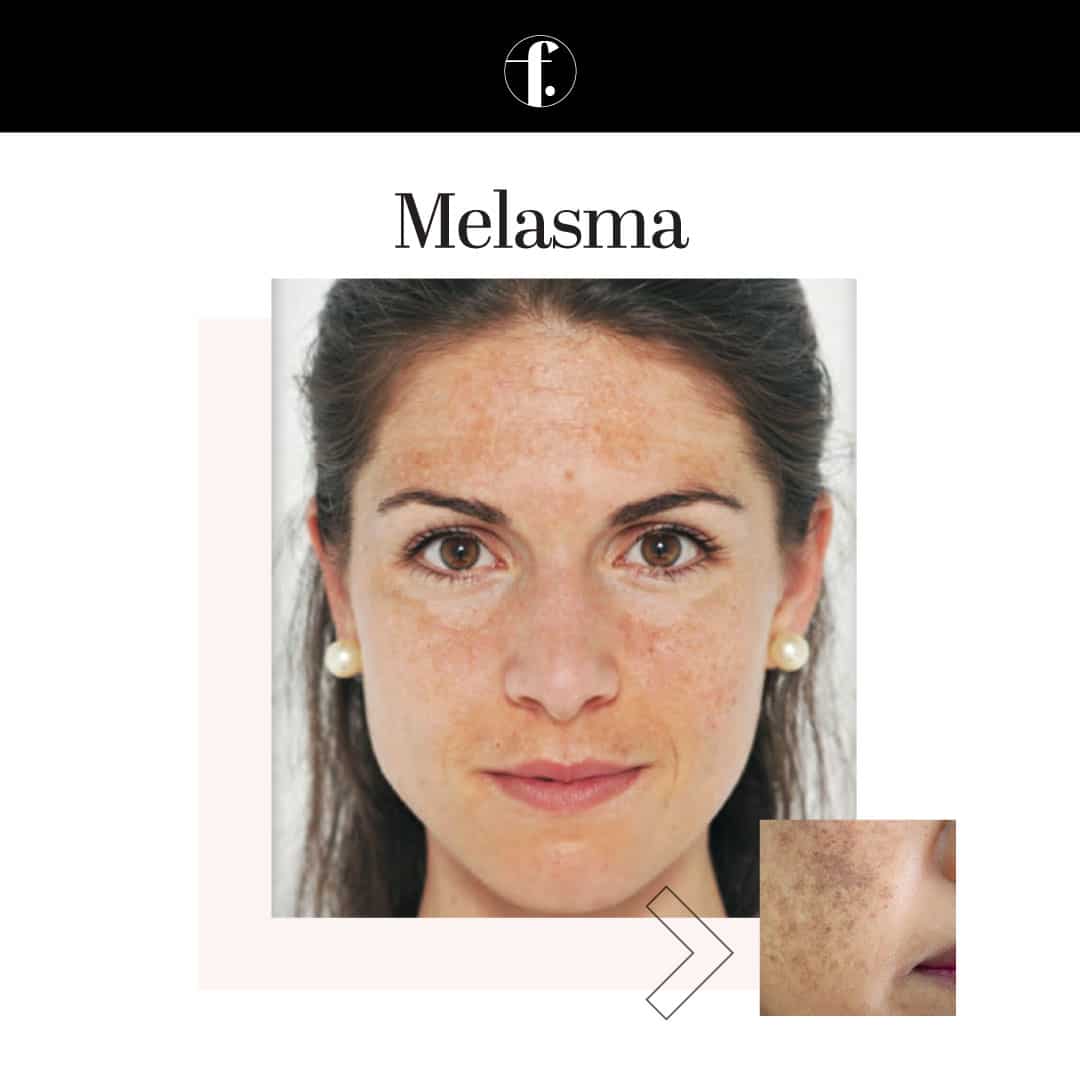If you’re from Denver, you know we get A LOT of sunny days here, and the UV on those days is usually high, thanks to altitude. So it’s no wonder that when we start noticing changes to our skin like freckles, dark spots, or discolorations that we blame the sun…right?
Well…not always…
While the sun and its UV rays can be harmful to our skin when we leave it unprotected, it’s not always sun damage that’s the culprit. What could it be, you wonder? It could be a condition called Melasma. And understanding its difference from sun damage matters in how it’s caused, and what you use to treat it.
The challenge: both melasma and sun damage can present as dark spots and discoloration. This makes it especially important to seek a skin care expert who can properly determine the difference between the two.
So, which one is affecting your skin? Let’s read on to learn more…
Melasma is a type of hyperpigmentation or darkening of the skin most commonly found in women. Melasma is often referred to as “pregnancy mask” as pregnant women are especially prone to this condition. While the exact cause of Melasma remains unknown, there are triggers that have been studied to cause these dark patches to appear, namely: genetic predisposition, hormone production (which is why pregnant women are affected), over exposure to the sun, birth control pills, tanning beds, stress, thyroid diseases and some anti-seizure or sun-sensitizing medications.
It’s exactly what it sounds like. Damage to the skin caused by the sun. Sun damage is more common among people with fair skin or those with repeated sun exposure, although it can happen to anyone. It can cause hyperpigmentation among many other things like: fine lines and wrinkles, dryness, dullness, and other unwanted skin conditions, including skin cancer.
Their cause and how they’re treated.
There are certain key visual identifiers that can help determine the condition.
Melasma causes skin discoloration, which usually appears as brown, tan, or grey-brown spots on the cheeks, upper lip, forehead, nose, and upper arms. These discolorations usually appear denser in the primary area. It usually appears across a woman’s face and mirrors itself when it does occur on both sides of the face. Sun damage can vary from freckles to sunburn to dark patches. While melasma is harmless, sun damage can develop into malignancy. It is important to get any skin damage examined regularly.

If you’re noticing unwanted changes to your skin, don’t ignore them.
While melasma can be challenging to treat due to its hormonal nature, we offer a combination of at home and in clinic treatments to reduce its effect.
Buyers beware: laser resurfacing or light therapies that heat the under layers of the skin and remodel collagen are to be avoided if you have melasma as they could cause more harm and discoloration.
To treat sun damage we offer both at home and in clinic solutions. While we can’t say enough about wearing SPF, prevention is key as sun damage is avoidable in the first place. Use sunscreens and protective clothing when out in the sun. We’re also big on skin checks. If you’re noticing sun damage or changes in your skin, book a skin check with your dermatologist so that they can examine you for skin cancer.
Whether you’re dealing with melasma or sun damage, let us help you determine its cause and what the best course of action is for YOUR skin. Call us today or book your visit online.
The Medical Spa and other skin care information contained on this website is provided for educational purposes and should not be taken as medical advice. To consult with one of our specialists in Denver and Greenwood Village, please contact us today for a free consultation. Facial Aesthetics – Our premiere Denver medical spa serves patients from Denver, Littleton, Cherry Creek, Castle Rock, and nearby communities in Colorado.
Facial Aesthetics is proudly owned and operated in Colorado, USA.
Copyright ©2020 | Website Designed, Developed and Optimized by Canvas Chicago.